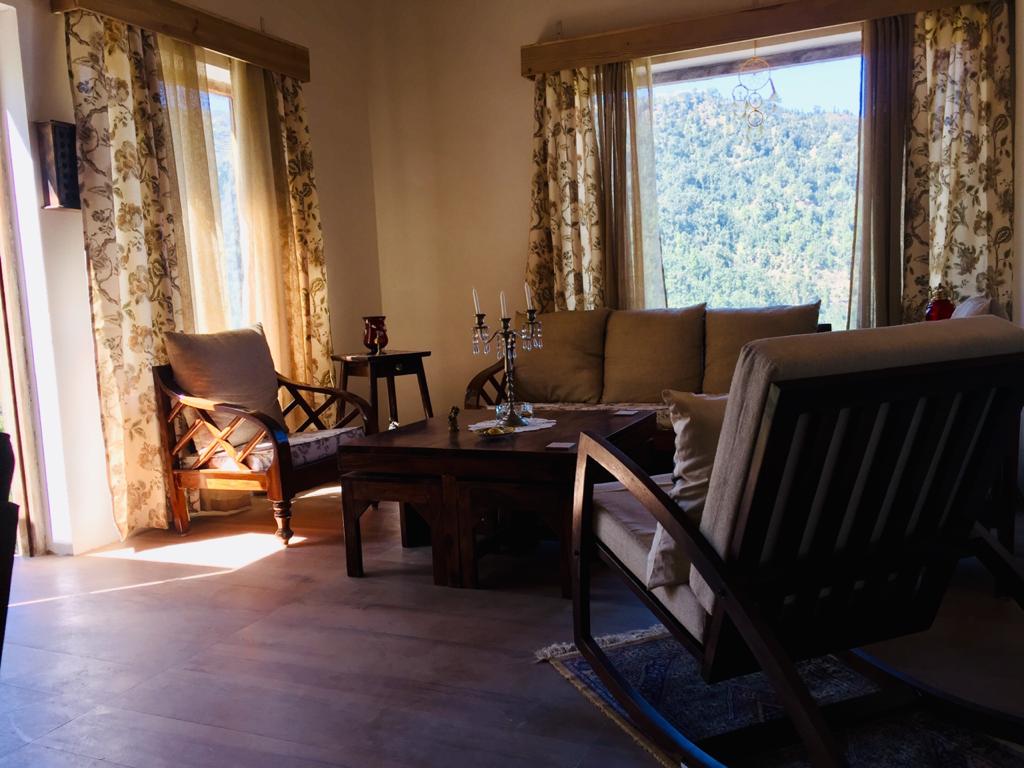For a traveller, homestay can be a truly liberating experience, letting one to eat and sleep at ease, and enjoy the local life with home-cooked meals—and that too in a personalised, inexpensive way.
Around a decade ago, we took a last-minute decision to attend the Jaipur Literature Festival, which wasn’t such a good idea. We couldn’t find a single hotel; forget fitting into our budget. And, to top it all, there were 8 of us! It was then that we figured out a homestay after much ado that could accommodate us all. It looked nice and on the outside and even though the lack of photos made us anxious, the testimonials gave us hope. On the day we had to drive down to Jaipur, the feeling was mixed since none of us had ever had that experience of a homestay – we were worried about the cleanliness, the food, the washrooms – the list was getting longer as we inched closer to the city. The one thing we were happy about was that since it was the JLF, we will be outdoors most of the time with the dinners and parties and won’t have to get back other than sleeping. As our cab turned into the driveway of the homestay called Rawla Rawatsar, a warm feeling seeped inside with the beauty of the house and its gardens in the quiet neighbourhood; the rooms that were beautiful and quaint — very Rajasthani, with tasteful upholstery; clean, modern bathrooms that were attached with each room; and last, but not the least, the warm hospitality and fresh home-cooked meals by the owner, Sanyogita Rawat, and her staff.

Not only have I never forgotten that experience, we were never able to stay at this place hence since this one was booked each year after that over three months in advance! Over the years, not only has it expanded hugely, Rawla Rawatsar has become a popular homestay for all kinds of people visiting the city or the state of Rajasthan, keeping Jaipur as their base. Sanyogita says, “Since Rajasthan is a home to tourism, a lot of tourists come to learn about the culture and enjoy the history of the place. I thought of starting a homestay at our residence around a decade ago to make their stay truly unique with the local flavour.”
With the pandemic having reached its peaks in metropolitan cities, people working from home were able to spend a few weeks in the hills or in smaller cities where the cases were low or negligible. Dhruv and Deepa Baruah recently started their homestay in a quaint hamlet by the name of Hartola near Mukteshwar in Uttarakhand. Their objective? “It’s our retirement plan. The search for a subsistence living actually starts with the homestay.”
“We chose Hartola because of three reasons. First, we always wanted a location far away from a typical touristy destination. Second, it was love at first sight. It had all the components that attract an ardent traveller – excellent views of the snow-capped mountains, far from the madding crowds, pure mountain air, fresh food made with organic produce, amongst other similar reasons.”

Rajasthan being a major tourist attraction gets a huge number of foreigners who like to stay for weeks or months together and homestays work great for them. Adds Sanyogita, “We generally have guests coming to us from all around the world … some from India too like you did. Long-staying guests either come to Jaipur for business or others want to relax and enjoy the hospitality of the family, interact with and know the basic culture.”
Since Katie’s Abode started just a few months ago, Dhruv states, “Till now the response has exceeded our expectations. On the Christmas and year-end weekends we exceeded our normal occupancy. Because of the coronavirus pandemic, we also got long-term guests who were working from the mountains.”
However, many travellers are not aware of the concept of a homestay. Because of the current situation vis-à-vis the Coronavirus, people are apprehensive of staying in hotels, preferring to stay in a homestay, but they have no idea whatsoever what it entails to stay with a family. A large section of travellers still regards homestays as a cheap form of accommodation. It becomes very difficult to make people see that even basic necessities are difficult to come by in the hills! People have to struggle for the things that are taken for granted in the plains. One may have to drive 10 kilometres for a loaf of bread, for example.
According to Bhawna Thakur, a resident of Delhi has been living in a homestay for almost a year with her entire family. She says, “Uttarkhand is famous across Asia is its famous boarding schools and my children are studying in one of these. When I came to pick my children before the Covid outbreak, we met one of the ex-students of the 1968 batch of the same school as my children who runs a homestay. We decided to stay back in the pristine mountains of Mussoorie; it has nearly been a year now that we are here breathing pure air, walking every day in the dense forests, and enjoying this life. Life is more beautiful when we are seeing our kids grow in front of eyes and I can spend more time with my partner while both of us work from home and earn our bread too.”
For travellers who understand a homestay arrangement, it can be truly liberating. There are no timings and one gets to eat and sleep at ease, enjoy the local life with fresher air and home-cooked meals, which becomes a personalised experience that works well in terms of finances too.

